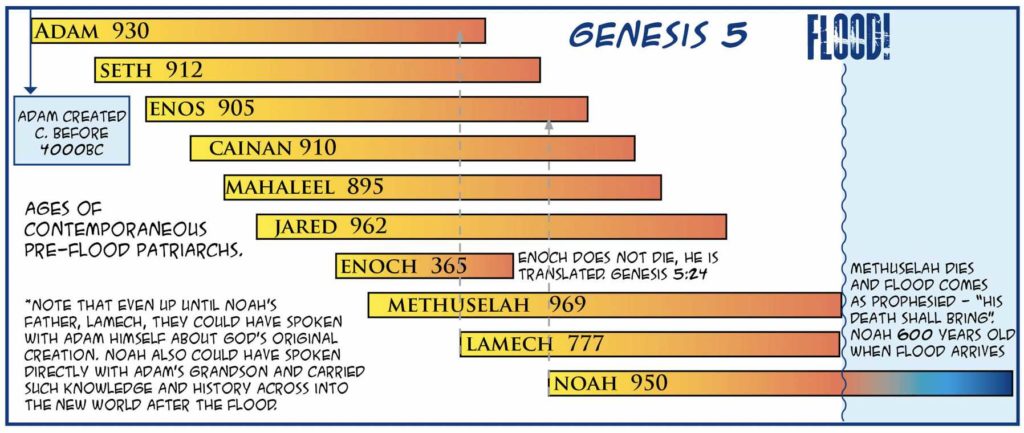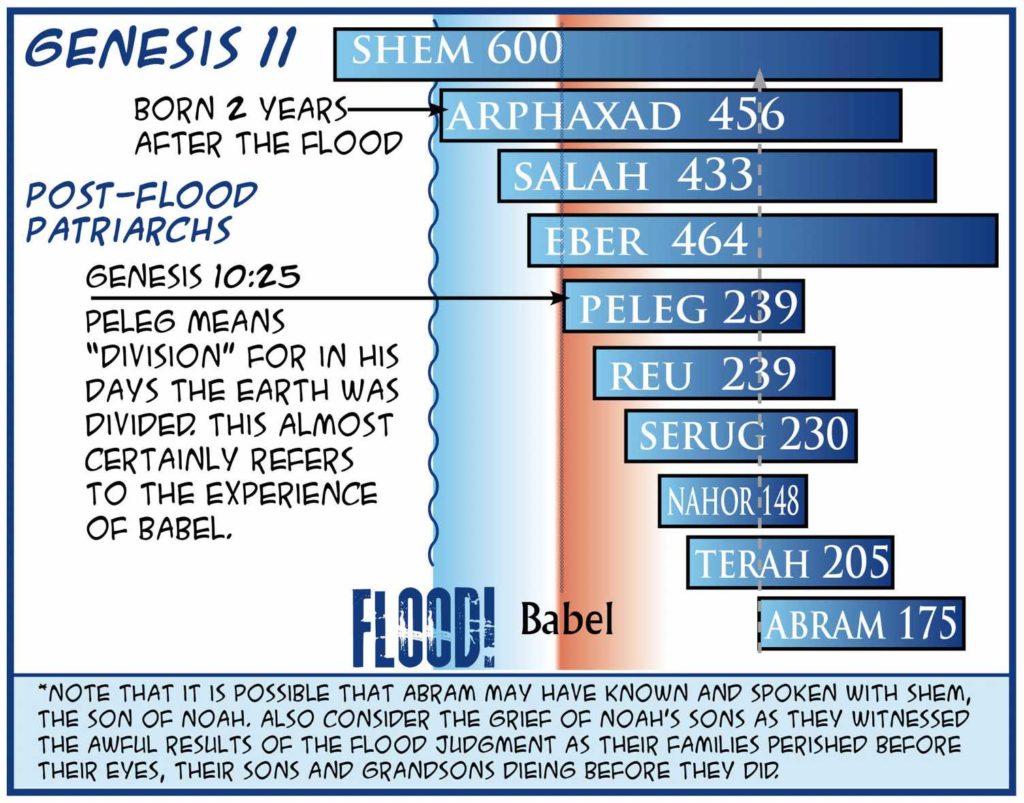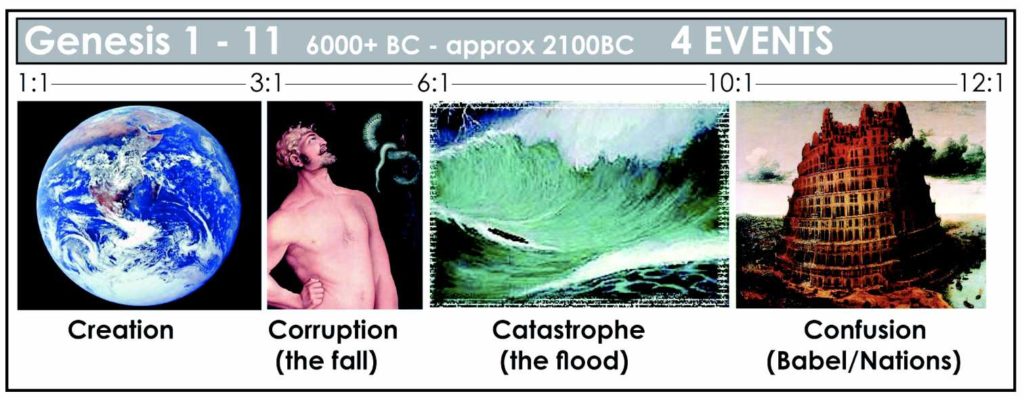This section of module intertwines the Biblical overview stream of the course and the doctrinal and historical elements. The reason for this is that Genesis provides us with the foundations from which a proper understanding of most Bible doctrines stems. As a book, and particularly the early chapters, it is like the fountainhead from which all the differing streams of thought and doctrine flow, and as such, provides the Bible student with the seeds of revelation that make sense of all other doctrines as they develop.
For example, the work of the atonement makes no sense apart from an understanding of man’s original estate before God, and the entrance of sin into humanity as recorded in Genesis 3. Also, the plan of redemption makes no sense within an evolutionary framework of thinking. A proper creation model of beginnings is the only sensible context for the development of the rest of the Biblical story and doctrine.
As such, it is important for the serious student to have a reasonable grasp of some of these early concepts, and of the basic scientific teachings presented by the Bible regarding origins, our ancestry, geology and cosmology, as these will ultimately supply the stage upon which the great Biblical characters play out their part in this awesome chronicle of redemption and restoration.

In this module we will consider five areas of Biblical doctrine in particular:
- The Creation and origins – How did it all begin? How old is the earth? Is evolution scientific?
- The Doctrine of man – How, when and why did mankind begin?
- The Doctrine of sin – Making sense of a world gone wrong.
- Noah’s Flood – the catastrophic model which answers many scientific questions about our past, and speaks prophetically of our future.
- Babel and the Nations – Where did the nations come from, what about skin colour and language?
![]() The Book of Genesis – A Brief Overview
The Book of Genesis – A Brief Overview
The book of Genesis was composed and written by Moses. Although liberal “scholarship” has sought to undermine this traditional and scriptural view of Genesis and its authorship, both Old and New Testaments repeatedly testify to the Mosaic authorship of the Pentateuch (the first 5 books of the Bible)
(eg. Josh 1:7; Dan 9:11-13; Luke 16:29; John 7:19; Acts 26:22; Rom 10:19).
In writing the book of Genesis, Moses most likely utilized older written and oral traditions, as well as material directly revealed to him by God. Moses was trained in the “wisdom of the Egyptians” (Acts 7:22), providentially prepared to understand, interpret and arrange all the available material and, under the direction of the Holy Spirit, compose this most important of books. This probably took place during the years of wilderness wandering (c.1446-1406 BC).
Some of the accounts that Moses may have utilised are family records of God’s chosen line of people and their offspring. They may have and included written material handed down from patriarchal fathers such as Noah, Shem, Seth and even Adam himself.
Upon viewing the genealogies related in Genesis 5 and 11 we discover that, because of hugely different life expectancy in the early world, Adam could have been personally known even up to Noah’s father, and could have personally related his memories of God’s perfect world in Eden and the subsequent events recorded in the earliest chapters of Genesis. Indeed, the “Creation Hymn” of Genesis 1:1-2:3 most probably was personally narrated to Adam by the Father Himself as they walked in the garden together in the “cool of the day” (Genesis 3:8). [See Illustration 1: Age of the patriarchs]
The structure of Genesis is built around eleven separate units, the introductory “hymn of creation” followed by ten sections, each headed with the phrase “the generations…”.
- The Creation Hymn 1:1-2:3
- The generations of Heaven and earth 2:4-4:26
- The generations of Adam 5:1-6:8
- The generations of Noah 6:9-9:28
- The generations of the sons of Noah 10:1-11:9
- The generations of Shem 11:10-26
- The generations of Terah 11:27-25:11
- The generations of Ishmael 25:12-18
- The generations of Isaac 25:19-35:29
- The generations of Esau 36:1-43
- The generations of Jacob 37:2-50:26
Ages of the Patriarchs


These long ages were the result of the perfect environment afforded by the early world. This was significantly upset by the catastrophic events of the flood, and a sharp decline in longevity results. Also, death was never intended to be a part of man’s existence, and the work of sin and death, with its devastating results, were still in the early stages.
The 4 Major Events and 4 Major People of Genesis
The Book of Genesis presents us with a broad history made up of four momentous events, followed by four key biographies. The pivotal chapter is chapter 12 where God calls Abraham, making the covenant with him that becomes the foundational covenant for the salvation of all peoples.

In the lessons presented in this module we will be focussing on the teachings prompted by an honest reading of the first eleven chapters of Genesis and the events they describe.

Surrounding these events and accounts is a multitude of opinion and counter-opinion. As a matter of conviction we choose in these lessons to present the Biblical view of creation, the origin of life and of man, the flood and the dispersion of nations etc. Other viewpoints will be presented, but the student must be aware that the considered view of the author is that the Bible is literally true, and unless a passage is explicitly allegorical, a literal interpretation, to the exclusion of compromised explanations of the written record, will be wholeheartedly adhered to. This is not a matter of dogma, but of reverence.
“…let God be true, but every man a liar.”
Romans 3:4 KJV
“Trust in the LORD with all thine heart; and lean not unto thine own understanding. In all thy ways acknowledge him, and he shall direct thy paths. Be not wise in thine own eyes: fear the LORD, and depart from evil.”
Proverbs 3:5-7 KJV
